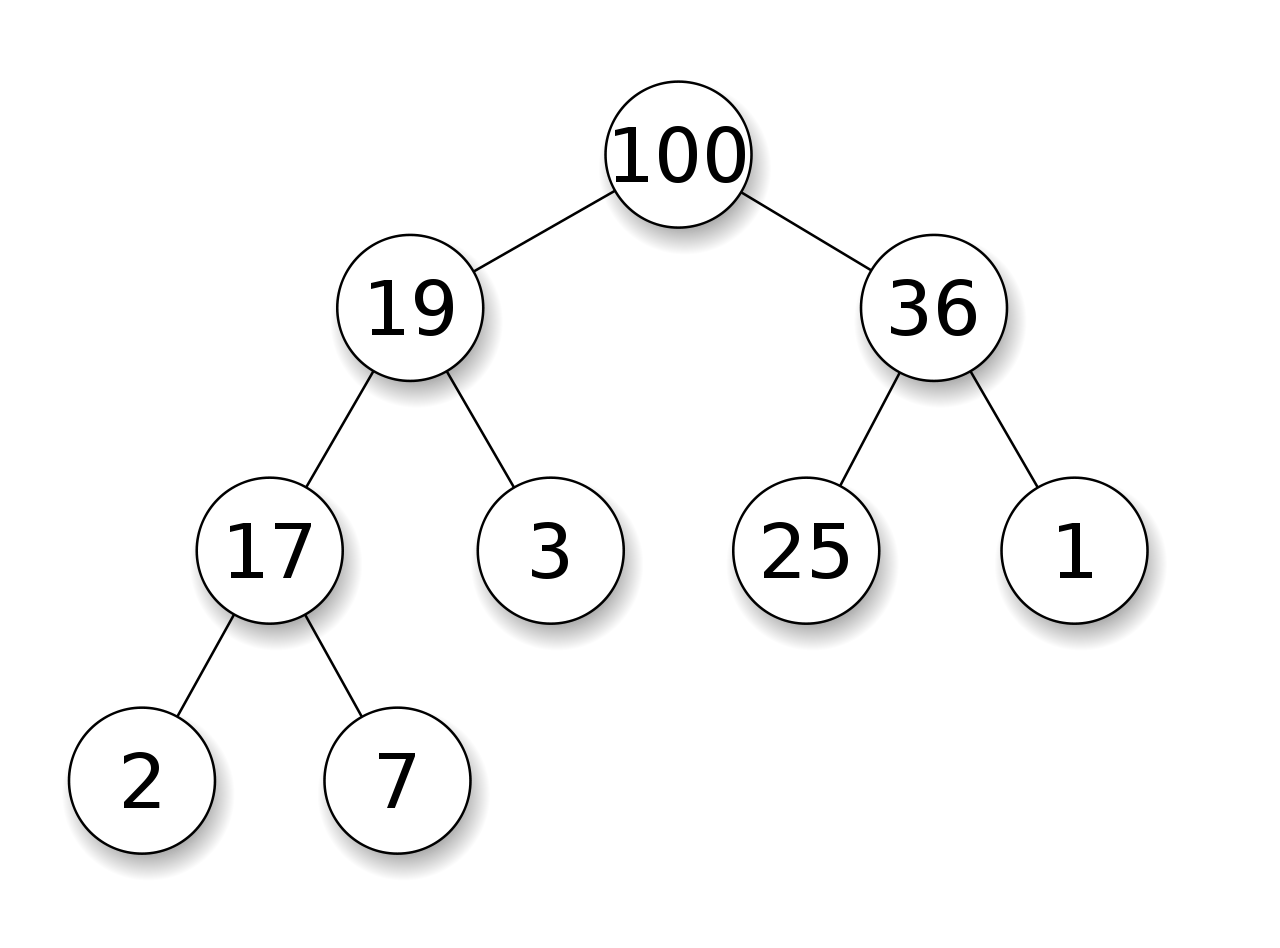
Intro
Heap is a basic and important data structure in computer science, I’ll
share my simple implementation by interger slice in Go, as well as Go and Java’s
native library’s implementation.
Simple implementation
1
2
3
4
5
6
7
8
9
10
11
12
13
14
15
16
17
18
19
20
21
22
23
24
25
26
27
28
29
30
31
32
33
34
35
36
37
38
39
40
41
42
43
44
45
46
47
48
49
50
51
52
53
54
55
56
57
58
59
60
61
62
63
64
65
66
67
68
69
70
71
72
|
package heap
// Heap represents the min heap data structure of []int.
type Heap []int
// Heapify converts nums to a min heap structure in place.
func Heapify(nums []int) *Heap {
h := Heap(nums)
for i := len(nums)/2 - 1; i >= 0; i-- {
siftDown(h, i)
}
return &h
}
// Push pushes integer v onto the heap. The complexity is O(logn) where n =
// h.Len().
func (h *Heap) Push(v int) {
*h = append(*h, v)
siftUp(*h, len(*h)-1)
}
// Pop removes and return the minimum value from the min heap. The complexity is
// O(logn) where n = h.Len().
func (h *Heap) Pop() int {
ret := h.Top()
(*h)[0] = (*h)[len(*h)-1]
*h = (*h)[:len(*h)-1]
siftDown(*h, 0)
return ret
}
// Top returns the minimum value from the min heap. The complexity is O(1).
func (h *Heap) Top() int {
if len(*h) > 0 {
return (*h)[0]
}
return 0
}
// Len returns the length of heap.
func (h *Heap) Len() int {
return len(*h)
}
func siftDown(h Heap, start int) {
i, n := start, len(h)
for {
leftNode := 2*i + 1
if leftNode >= n {
return
}
j := leftNode
if rightNode := leftNode + 1; rightNode < n && h[rightNode] < h[leftNode] {
j = rightNode
}
if h[i] <= h[j] {
return
}
h[i], h[j] = h[j], h[i]
i = j
}
}
func siftUp(h Heap, k int) {
for k > 0 {
parent := (k - 1) / 2
if h[parent] > h[k] {
h[parent], h[k] = h[k], h[parent]
}
k = parent
}
}
|
Use case
1
2
3
4
5
6
7
8
9
10
11
12
13
14
15
16
17
18
19
|
package main
import (
"fmt"
"./heap"
)
func main() {
data := []int{1, 3, 5, 7, 9, 2, 4, 6, 8, 10}
h := heap.Heapify(data)
fmt.Println(h.Pop())
fmt.Println(h.Pop())
fmt.Println(h.Pop())
h.Push(5)
h.Push(6)
h.Push(7)
fmt.Println(h.Pop())
fmt.Println(h.Len())
}
|
Go Native Library Implementation
To be continued.
References

